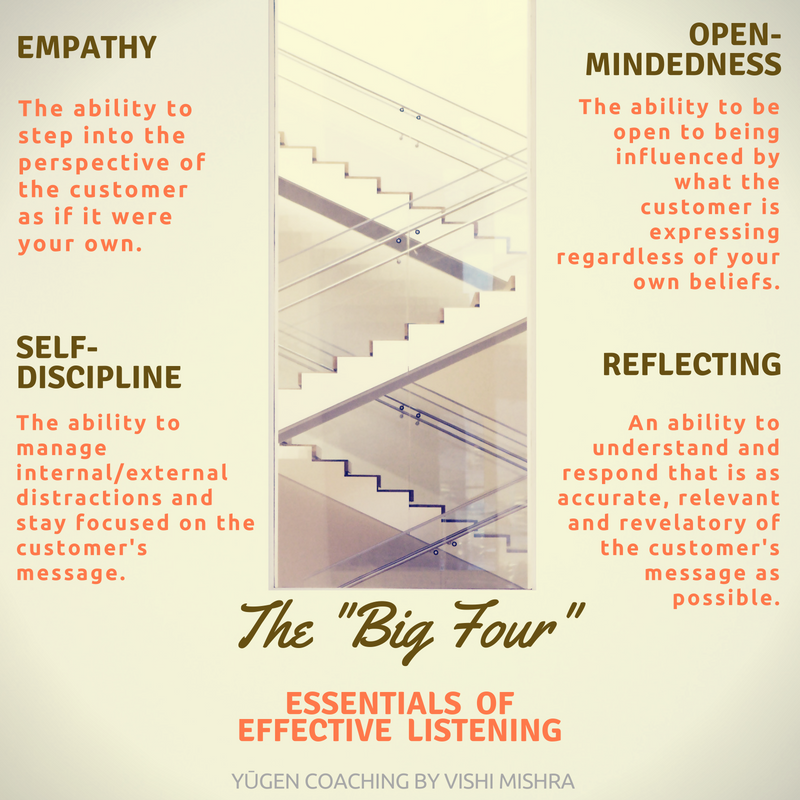The ‘Big Four’ Essentials of Effective Listening!
- Vishi Mishra
- Jun 23, 2018
- 2 min read

A huge part of being a good communicator is knowing how to listen well, especially when we spend almost half (40% to 50%) of our communication time, listening. Also considering how effective listening adds value to our workplace performance, leadership skills, quality of relationships and overall well-being and the acute deficit thereof, it becomes particularly useful to hone this important yet underrated communication skill.
I list below, the four essential abilities that are basic to effective listening. Not every conversation requires high levels of listening, but many conversations would benefit from greater focus and skill in these four areas.
1. Empathy
Often disregarded as something too soft, fluffy, passive, and even submissive, Empathy has been researched to play an essential role in customer service and selling, talent attraction and crisis management apart from contributing positively to our relationships. While listening, it is the ability to understand another’s perspective ‘as if’ it were our own. The caveat ‘as if’ is important to note as the goal is to understand the customer’s perspective as against identifying with it which in turn, blocks listening. If done authentically, it’s the first building block to creating trust between individuals and groups.
2. Open-Mindedness
Human brains unwittingly filter out or reconfigure the uncomfortable, unknown or confusing to match what is being said with something we are more familiar with. These are brain biases in the form of filters, attitudes and stereotypes that affect our understanding of what we are hearing. In short, we hear what we want to hear. This is not specific to any single person or set of people. It’s said that “if you have a brain, you’re biased.” An awareness and acceptance of this inherent human fallibility can help us approach every conversation with curiosity, non-judgement and receptiveness to what is being said.
3. Self-Discipline
Because we think faster than the other person speaks, it’s not unusual for our attention to wander off in a listening situation. It’s also not unusual for us to response-rehearse instead of listen to what the other is saying. To top it, our biases and thinking errors further distract us from what’s really going on with the speaker. Great listeners are aware of these listening glitches and train themselves to keep focused on the speaker.
4. Reflecting
While the above three ensure we are fully attending to the speaker, reflecting is the significant other piece of the effective listening process that ensures we accurately understand what is being expressed and respond with what’s relevant to the speaker. We do that by clarifying, paraphrasing, summarizing and remembering what’s being said. Good reflective skills can, oftentimes, bring to light a completely different dimension to a situation which was, hitherto, unknown or unacknowledged by the speaker enriching the quality of the interaction and its end goal.
Listening is a truth-seeking endeavor, a live and dynamic process of human interaction. The ‘Big Four’ essentials aid this process. While writing this piece, it is likely that my own biases were at play. So feel free to leave comments that you think may add value.












Comments